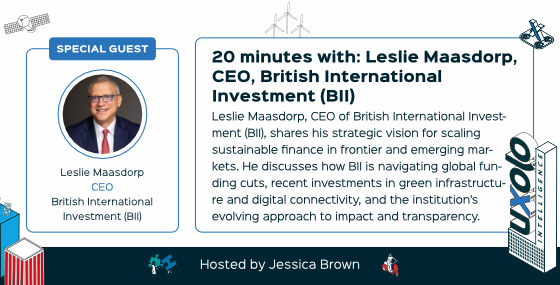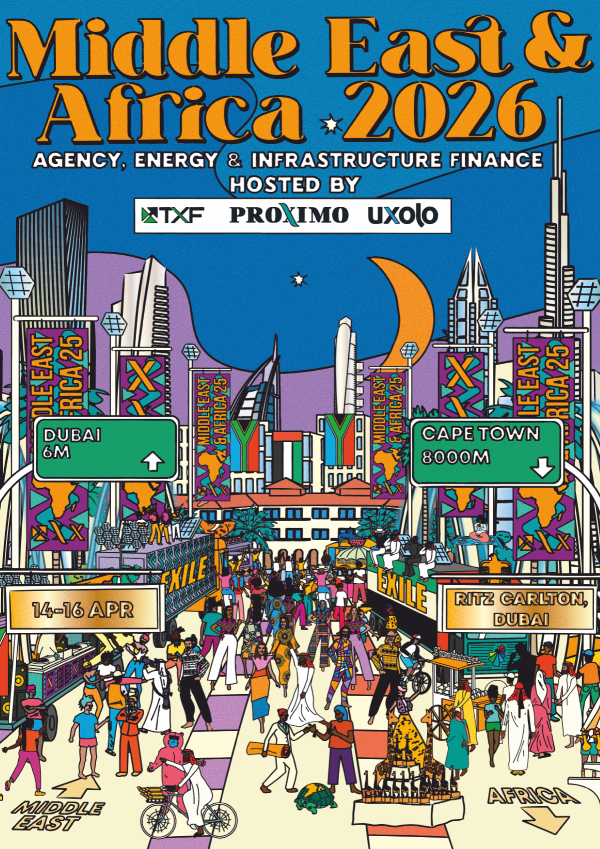New green infra fund aims to unlock $4bn for urban innovation
The City Climate Finance Gap Fund will help cities in poorer nations develop strategies for climate-friendly growth and turn them into bankable projects.

Looking to unlock billions of dollars of infrastructure investment to aid the green transformation of emerging-economy cities, the governments of Germany and Luxembourg, along with the World Bank, The European Investment Bank (EIB) and the Global Covenant of Mayors, recently launched the City Climate Finance Gap Fund.
With a target capitalisation of around €100 million ($117 million), the Gap Fund is aiming to catalyse at least €4 billion of final investment in climate-smart projects and urban climate innovation in low and middle-income countries. To date the fund has raised €55 million – €45 million from Germany and €10 million from Luxembourg – and is currently in negotiations to place the remaining €45 million.
“Much of climate space is focused on things like reforestation and the energy transition, where there’s the big emissions-reductions potential; but there hasn’t been much focus on cities, even though that’s where most emissions come from,” says Peter Ellis, global lead for Sustainable City Infrastructure and Services at the World Bank. “So there’s a two-fold problem to solve: how do you help a city devise a strategy; develop a target for their emissions reductions and a path to achieve that target? And once they’ve developed that strategy, how do they get the interventions investment-ready? That’s what the Gap Fund is trying to help with.”
The Fund will offer technical and advisory services to help city and local governments to conceive of climate-smart investments and programmes at an early stage, and then help them develop those into bankable projects. The World Bank and the EIB will implement the Fund’s operations. The World Bank will focus more on the urban planning part of the programme, and EIB the preparation of the projects for investment. “We want to be quite flexible to the individual needs of each city. But we’re not trying to dictate to them, we’re trying to help them come up with their own solutions,” says Ellis.
The projects, Ellis reveals, will cover traditional urban innovation areas such as public transit, non-motorised transport, green buildings, and wastewater treatment. But the Fund will also look to promote newer issues such as the greening of urban areas and public spaces, nature-based solutions, as well as solid waste and recycling – particularly with a focus on advancing the circular economy. “On the neighbourhood level, it’s about things like getting more green roofs or solar-panelled roofs, and getting more low-income affordable housing that’s made of sustainable materials and is energy efficient,” he adds.
The Fund aims to provide support to some of the world’s poorest cities, even in fragile states like Somalia and Afghanistan, and has already received an expression of interest from Kinshasa, the capital of the Democratic Republic of the Congo. “These cities are the big emissions producers of the future; they might not be able to issue bonds, but they receive a lot of private and donor money that could be used to support more green, climate-friendly growth,” says Ellis. “We need to help them avoid developing all the problems that bigger cities now face: the sprawl, the pollution, the congestion, the lack of green space, and so on.”
Cities now account for around 70% of global CO2 emissions, and urban centres’ share of emissions is expected to grow as 2.5 billion people migrate from rural to urban areas by 2050. Before the COVID-19 pandemic struck, the UN estimated that more than $93 trillion in sustainable infrastructure investment was needed by 2030 to meet the world’s climate goals. But as cities look to recover from the economic impacts of the pandemic, investments in clean energy, climate-resilient water and sanitation, and urban regeneration projects could play an important role in eliminating pollution, improving local food systems, and creating green jobs.
“With the global focus shifting towards climate impacts, there’s been a recent push to make cities more compact because that’s generally thought to reduce emissions,” says Ellis. “If you now look at places like South Asia and Africa, the urban footprint is expanding so much faster than it ever has. The expectation is that over the next three to five decades, you could see a doubling of those populations, corresponding to a seven-fold increase in urban footprint. And that could offset the gains made from reforestation and the energy transition. We need to help cities manage that urban expansion better, so we can improve the productivity and quality of urban space at the same time as helping the environment.”
The Fund will work with a variety of financing mechanisms to fund the projects. According to Ellis, in some countries that may mean using PPP structures, and in others – such as South Africa – issuing green bonds. Some higher-risk projects may be funded by multilateral development banks, or regional development banks like the Development Bank of Southern Africa, while more-bankable projects will be financed using syndicated loans. “You might even have smaller-scale social enterprises that finance some aspects, like some of the community-funded waste-to-energy projects in Kenya,” adds Ellis. “It’ll depend on the requirements of the city and its national government, but the hope is to crowd-in as many types of financiers as possible.”
Announced at the UN Climate Action Summit 2019, the Gap Fund is partnering with several other key players in the climate finance arena, including C40, ICLEI - Local Governments for Sustainability, and Cities Climate Finance Leadership Alliance. “It’s not just thinking about climate resilience and adaptation, but also climate mitigation and long-term impacts,” says Ellis. “And part of that long-term thinking is considering not just big infrastructure projects but also how to use green innovation to create stronger neighbourhoods and communities.”





